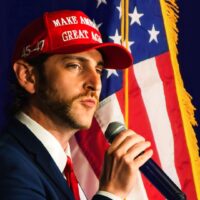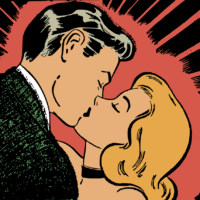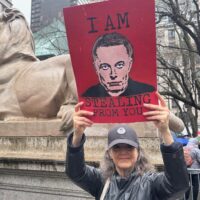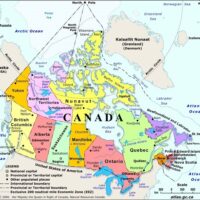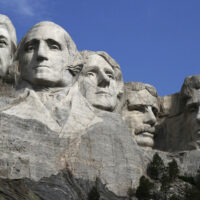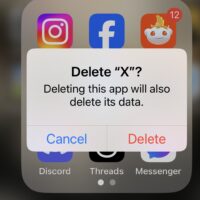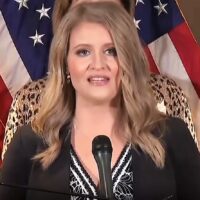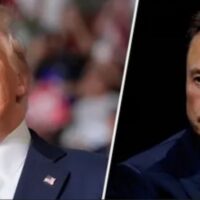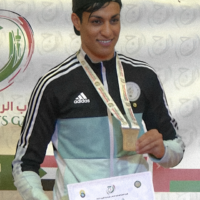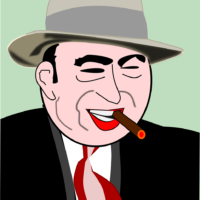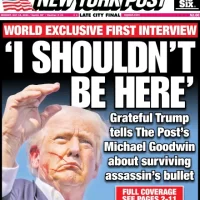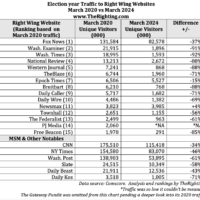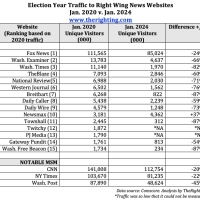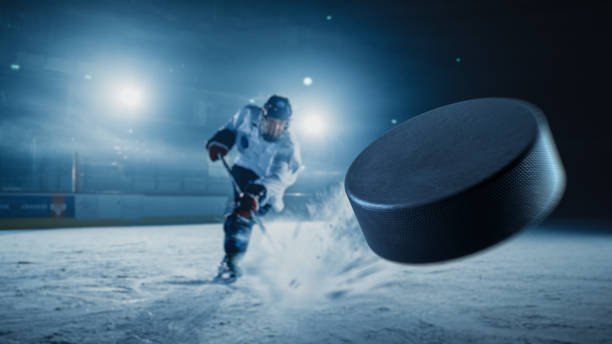
Oops: The NHL’s Anti-Pride Backlash Has Been Greatly Exaggerated
Only six of the hockey league’s hundreds of players have explicitly refused to wear a Pride jersey
By Michael Lovito, April 3, 2023
On January 27, most of the New York Rangers’ scheduled Pride Night went according to plan. Madison Square Garden was lit in rainbow colors, fans received a free Pride-themed fanny pack, and NYC Pride co-chair Andre Thomas delivered the ceremonial puck drop.
But there was one thing missing. Well, really 20 things missing. None of the Rangers took to the ice in the Pride-themed warm up jerseys that had been heavily promoted before the game and that, at past Rangers Pride nights, had been auctioned off after the game for charity. NYC Pride called the lack of jerseys “a major disappointment to the LGBTQ+ community and beyond.” The Rangers refused to offer a clear explanation for their absence, saying only that they were “proud to bring attention to important local community organizations” and that “we support everyone’s individual right to respectfully express their beliefs.”
In a country where nearly a quarter of Senate Republicans supported a bill to protect same-sex marriage last year, the Rangers’ decision to literally keep their Pride jerseys in the closet might feel uniquely out of step with public sentiment. But it’s just one example of a larger backlash to Pride events and jerseys that’s swept across the National Hockey League, turning the greatest sport on ice into the latest culture war battleground. Some commentators on the right have hailed the backlash as a victory for free speech and a powerful counterpunch to what conservative sports website Outkick has declared the “rainbow mafia.” But taken in the larger context, this opposition to Pride begins to feel comparatively small, and an indication of how far the fight for LGBTQ acceptance in professional sports has come.
If You Can Play, You Can Play
The modern history of the NHL and Pride events arguably begins in 2009 when Brian Burke, then general manager of the Toronto Maple Leafs and the epitome of the tough, truculent “hockey man,” marched in that year’s Toronto Gay Pride Parade. Burke decided to march in the parade after his son Brendan, who played high level high school hockey and would later become a manager of Miami University’s hockey team, publicly came out as gay earlier that year. After Brendan’s death in a car accident in 2010, Brian Burke and his other son, Patrick, founded the You Can Play Project, a campaign working to ensure LGBTQ inclusion in sports that received early support from NHL stars like Henrik Lundqvist, Jonathan Toews, and Sidney Crosby.
In 2014, Edmonton Oilers captain Andrew Ference became the first captain in any major North American professional sport to march in a Pride parade, and helped raise money for Pride Tape, a grassroots collective* that produces rainbow colored athletic tape for use on hockey sticks, lacrosse sticks, baseball bats, and other equipment. In 2016, the Oilers became the first NHL team to use Pride Tape in an official capacity during their annual Skills Competition. Pride Tape would go on to be adopted by all 32 NHL teams, as well as teams in the Premier Lacrosse League, Major League Baseball, Pac-12 Softball, and other major sports organizations. As of this year, all 32 NHL teams host an annual Pride night.
From Russia With(out) Love
The recent disruptions to NHL Pride nights fall into two broad categories. The first follows the template of Ivan Provorov, the Philadelphia Flyers defenseman who, citing his Russian Orthodox faith, became the first NHL player to refuse to wear a Pride-themed warmup jersey. Since Provorov’s decision in January, three other players – James Reimer of the San Jose Sharks and Eric and Marc Staal of the Florida Panthers – have followed suit, saying that they could not participate in their respective teams’ Pride night warmups because of their religious beliefs.
While the Flyers, Sharks, and Panthers chose to wear their pride jerseys despite these players’ objections, three teams – the New York Rangers, Minnesota Wild, and the Chicago Blackhawks — decided to scrap their Pride jerseys entirely. Like the Rangers, the Wild, who had also intended to auction off these jerseys, offered no clear explanation for their decision. The Blackhawks, however, cited concerns that the jerseys could run afoul of Russian anti-LGBT laws and put Russian-born defenseman Nikita Zaitsev in legal jeopardy.
Kristopher Wells, the Canada Research Chair for the Public Understanding of Sexual and Gender Minority Youth at MacEwan University and one of the co-founders of Pride Tape, conceded that the jerseys could present legitimate safety and security concerns for Russian players. But he also said that deciding to cancel the jerseys teamwide would only embolden the wave of anti-LGBTQ legislation that’s cropped up in Russia, Brazil, Poland, Italy, and, of course the United States.
“We’ve heard some teams talk about needing to protect the safety of their Russian players, and it’s hard to say if those are legitimate security concerns or not. They very well may be,” Wells said. “But even in those cases, the appropriate approach would be to simply sit those players out of warmups and tell people why you’re doing it. Because if you cancel or water down pride nights, it’s Vladimir Putin who wins.”
At least two team seem to agree with Wells’ position: shortly after our conversation, it was announced that while the Buffalo Sabres would wear their pride jerseys as planned on March 27th, Russian defenseman Ilya Lyubushkin would sit out of warmups due to safety concerns for him and his family. On March 31st, fellow Russian Andrei Kuzmenko of the Vancouver Canucks also chose to sit out of warm ups while the rest of his team donned pride jerseys, calling his choice “a family decision.”
A Deceptively High Level of Support
Soon after Provorov announced his decision to sit out of the Flyers’ warmups, conservative media outlets seized on his and other players’ defiance as a sign that a backlash against the so-called “woke agenda” had finally taken shape in the NHL. The American Conservative’s Rod Dreher praised Provorov for not apologizing for “following his conscience in defiance of the Woke Totalitarians.” Tom Raabe of The American Spectator declared the NHL “the least woke of the American sports leagues,” and claimed that “the pushback on gay themes can perhaps be laid on hockey’s workingman roots and popularity.” Writing in the Washington Examiner, controversial Canadian sex researcher Debra Soh claimed that “hockey isn’t known to be a particularly woke sport,” citing statistics showing that NHL fans were split about evenly across political affiliations.
While Wells admits that there’s no question that hockey is a “privileged” sport that, for a myriad of social and economic reasons, primarily attracts white and middle-class players, he also said that commentators trumpeting the NHL and its players as crusaders against the woke scourge are missing the forest for the trees.
“I think what gets lost in all of this controversy is the fact that the vast majority of NHL players support LGBTQ equality,” Wells said. To date, only six of the NHL’s hundreds of players have explicitly refused to wear a Pride jersey. “I’m sure any politician would love to have a 95% approval rating like this issue has among NHL players.”
Indeed, support for the NHL’s Pride nights has come from some unlikely places. On the same night that the Sharks’ Reimer complained that the teams’ warmup jerseys felt “mandatory or in your face,” team captain Logan Couture, a Canadian player who has expressed support for Republicans in the past, said that he and his teammates were “looking forward to going out there and putting the jersey on.” That night, instead of tweeting game updates, the Sharks’ Twitter account dedicated their feed to sharing “information and facts about LGBTQIA+ topics,” including statistics about harassment and suicide rates within the LGBTQ community. Even Larry Brooks, the confrontational hockey columnist for the typically conservative New York Post, said that the Panthers showed “great courage in holding a night in support of the LGBTQ+ community in a state where such corporate endorsement is not always looked upon favorably by governing bodies with the power to punish.”
Reasons for Optimism
While the recent controversies have stoked some fears that NHL teams may choose to forgo pride celebrations in the future, Wells is optimistic that the outspoken support for these initiatives from high profile players like Couture, the Panthers’ Matthew Tkachuk, and the Oilers’ Connor McDavid (widely considered the best in the world) will limit the backlash, and that the NHL will choose to use the recent turmoil as an opportunity to improve their LGBTQ outreach.
“Controversy can go one of two ways. It can shut everything down, or it can open up the space and provide a new path for us to learn and grow,” Well said. “I think we’re seeing more teams choose to learn and grow.”
Of course, there’s still a lot of work to be done before hockey can truly be for “everyone,” as the NHL diversity initiative states. There are still no out gay players in the NHL, and a report released by Hockey Canada in December 2022 documented that 61 percent of the 512 penalties issued for discriminatory language that year involved “sexual orientation or gender identity.” Still, Wells is hopeful that the widespread acceptance of Pride events among NHL players is a signal that things are slowly changing, and said that even those who choose to sit these events out are doing fans a favor by identifying themselves.
“I’d be more concerned if it was a majority of players opposing these nights,” Wells said. “And if you do object as a player, well, it’s good that we know who you are.”
Michael Lovito is a Brooklyn-based reporter and critic whose work has appeared in Salon, Brooklyn Magazine, Pavement Pieces, and The District. He also serves as editor-in-chief of the politics and pop culture website The Postrider. @MLovito
*An earlier version of this story referred to Pride Tape as a company.
Interested in more news about right-wing media curated especially for mainstream audiences? Subscribe to our free daily newsletter.
Widespread acceptance of Pride events among NHL players is a signal that things are slowly changing. (Image: Pixabay)

